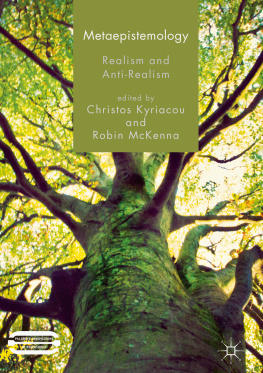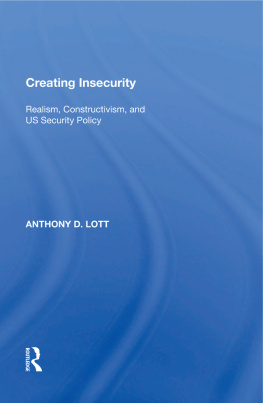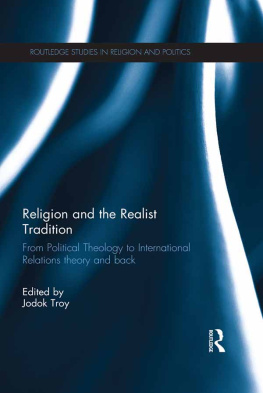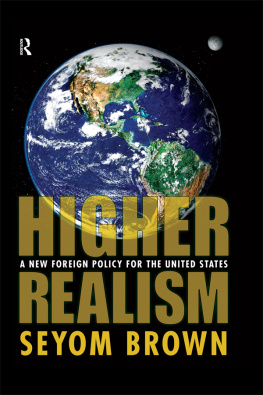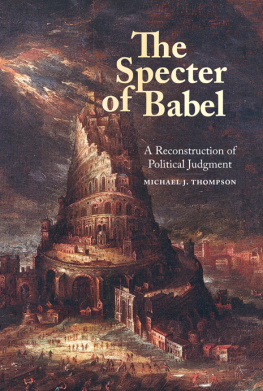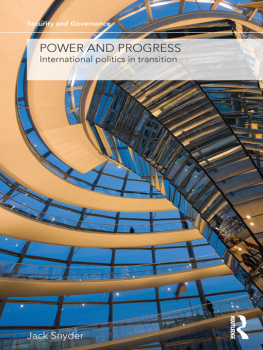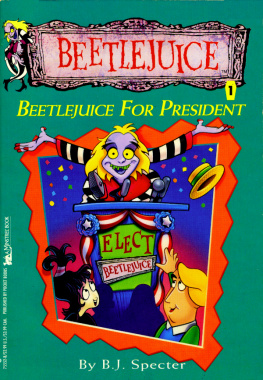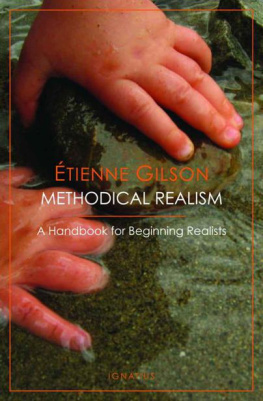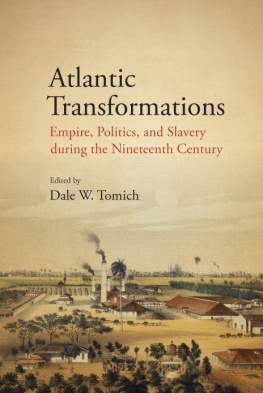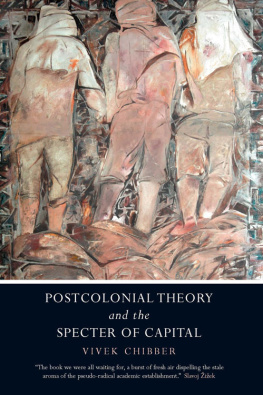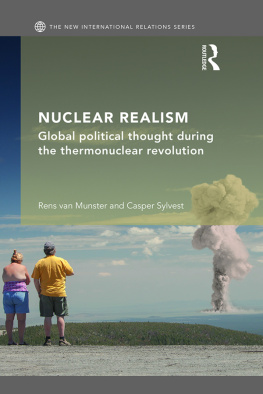THE ATLANTIC REALISTS
Empire and International Political Thought Between Germany and the United States
Matthew Specter
Stanford University Press
Stanford, California
STANFORD UNIVERSITY PRESS
Stanford, California
2022 by the Board of Trustees of the Leland Stanford Junior University. All rights reserved.
No part of this book may be reproduced or transmitted in any form or by any means, electronic or mechanical, including photocopying and recording, or in any information storage or retrieval system without the prior written permission of Stanford University Press.
Printed in the United States of America on acid-free, archival-quality paper
Library of Congress Cataloging-in-Publication Data
Names: Specter, Matthew G. (Matthew Goodrich), 1968-author.
Title: The Atlantic realists : empire and international political thought between Germany and the United States / Matthew Specter.
Description: Stanford, California : Stanford University Press, 2022. | Includes bibliographical references and index.
Identifiers: LCCN 2021018692 | ISBN 9781503603127 (cloth) | ISBN 9781503629967 (paperback) | ISBN 9781503629974 (epub)
Subjects: LCSH: Political realismHistory20th century. | Balance of powerHistory20th century. | ImperialismHistory20th century. | International relationsPhilosophy. | GermanyForeign relations20th century. | United StatesForeign relations20th century.
Classification: LCC JZ1307 .S64 2022 | DDC 327.101dc23
LC record available at https://lccn.loc.gov/2021018692
Cover design: Rob Ehle
Cover image: Winslow Homer, Northeaster (1895; 1901), Metropolitan Museum of Art.
Typeset by Kevin Barrett Kane in Sabon LT Pro
For Marjan
Contents
Preface
We are living through a period of crisis in the transatlantic security relationship that has connected the United States to Germany since the end of World War II. It is not the first and will not be the last. But the peculiarities of this particular crisis are illuminated by the discussion of Atlantic realism I have undertaken in this book. When the Trump presidential campaign began to speak in 2016 of America First, they were making a self-consciously historical gesture. They hearkened back to a time before the globalists and the liberal internationalists had won. The nativism and apologists for the Third Reich in the original America First movement did not trouble them; indeed, it added to the frisson of Trump the taboo-breaker. Under his administration, Americas relations with all of its postwar allies were actively sabotaged or left to deteriorate. As Trump trash-talked NATO, it appeared that German chancellor Angela Merkel had a good claim to be the real leader of the so-called free world. With her late and calculated decision to admit large numbers of refugees, she not only honored Germanys obligations under international law but affirmed that German citizenship was no longer based on blood. Germanness was attainable through naturalization. In the US, meanwhile, the Republican Party under Trump challenged constitutional guarantees of birthright citizenship that had long been taken for granted by both parties.
But the asymmetry between the current German and American political cultural moment is an illusion. In both countries, multiculturalism and liberal democracy are under siege from identitarian groups that insist on the impossible: the attainment of a homogenous nation, purged of impurities. Minorities have been recast as foreign and parasitic. But in their quest for national purity the ascendant far-right groups are in fact able to build on old and new transnational linkages, many of which extend back decades. While liberals in the Euro-Atlantic world despair of the illiberal populism of Donald Trump and the crisis in transatlantic relations, far-right groups on both sides of the Atlantic are actively learning from one another. As right-wing mobs maraud through Charlottesville, Virginia, the German police are forced to confront far-right extremism in their own ranks. Underlying these developments, theorists of populism have detected the pursuit of purity with ethnic homogeneity and a closure of identity as its signature. Just as America Firsters, Tea Party patriots, and Border Wall builders concur that there is a pure American essence to be defended from demographic change, so do the newest iterations of the European far right bemoan the multicultural dissolution of both the national self and Western civilizational identity at large. To these rightists, the notion that our identities might already be hybrid or porous is a scandal. Debates, meanwhile, rage over whether Trump can be reasonably or profitably compared with Hitler, and more modestly, whether Trumps coziness with neo-Nazis and white nationalists signifies the emergence of fascism in an American key. All of these reversalsGood Americans, Bad Germans, Bad Americans, Good Germanscan make our Tarantino-filled heads spin.
One of this books central themes suggests that the current crisis in the transatlantic relationship has a deeper meaning than merely the clash between neoliberal democracy and populist nationalism. As I argue, there is an elective affinity between a particular kind of national identity as the monologue of an ethnically homogenous majority (associated in the US with a waning sense of Anglo-Saxon whiteness) and the realist view that the national interest can be determined equally solipsistically. Americans often combine a paradoxical faith that their truths are universal and their provenance at the same time is exclusively nationalthe exceptional nation whose mission is universal. An investigation of the origins of this paradox can help us understand by contrast that there is no zero degree of American interest or American reflection on foreign policy. Instead, interestjust as identityturns out to be the haphazard product of prodigious processes of borrowing. Much American reflection on its role on the world stage over the last century was the product of transatlantic intellectual exchange. While there are good reasons to emphasize the special relationship between the imperial democracies of the United States and Great Britain, and much attention has been paid to an Anglo-American tradition in foreign affairs, this book will emphasize the German-American tradition of international thought constructed by the thinkers I have named the Atlantic realists.
The ideas in this book have been gestating since I was a college student in the late 1980s. I was introduced to the realists and their ideas in a freshman seminar on ethics and foreign policy with Joseph Nye. One late night, I tapped into the keyboard of my first-generation Macintosh computer, What is the national interest? Is it a kind of myth? My skepticism about the totemic status of the idea of the national interest was amplified by my reading of Noam Chomskys and Edward Hermans books, then a kind of samizdat literature. The shadow of nuclear apocalypse led me to the Nuclear Freeze protests in Central Park in 1982, and then to several years as a student critic and activist against Reagans foreign policy in South Africa, Nicaragua, and El Salvador. Naming the United States as an empire broke the general taboos that existed in the academy and the political mainstream in the 1980s. I turned to French and German social theory for help in making sense of Reagans Cold War America. These theoretical traditions inspired me to focus my undergraduate studies on intellectual history. As a doctoral student in European intellectual history at Duke University, I experienced the national traumas of Bush v. Gore in 2000, the invasion of Iraq in 2003, and the excesses authorized by the War on Terror.



